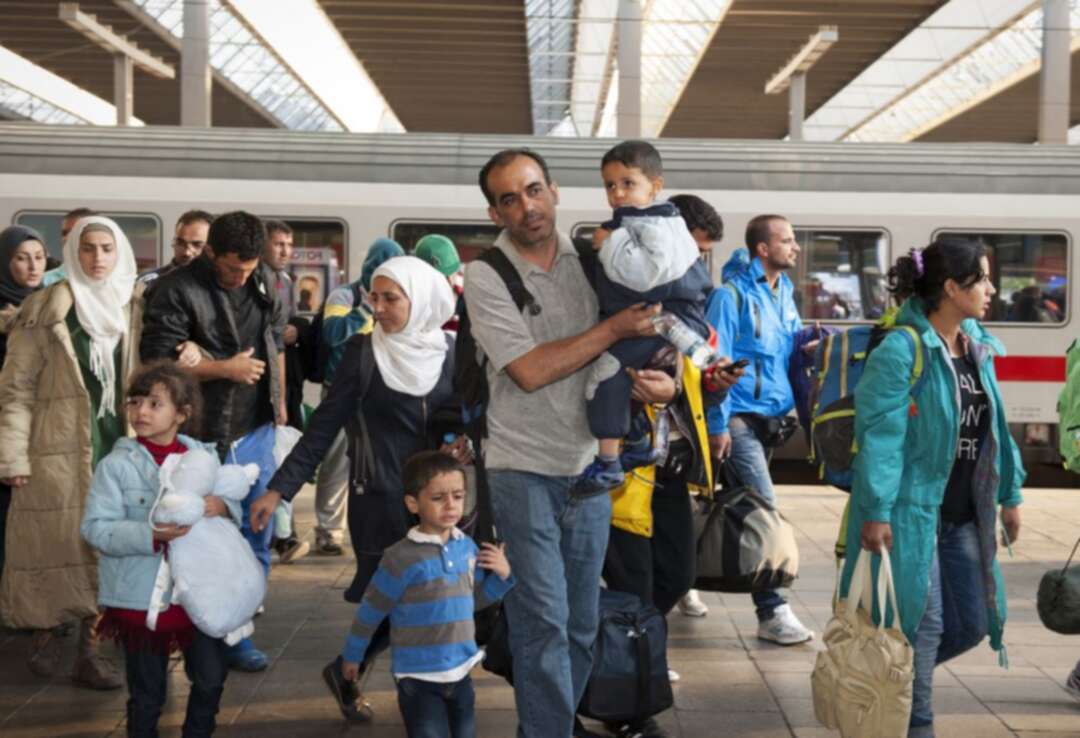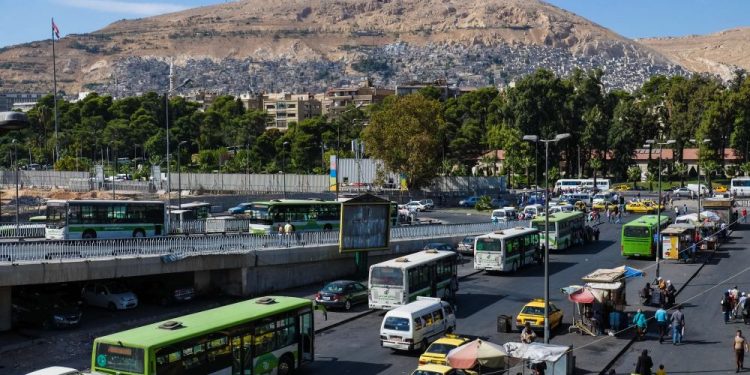-
Amnesty International: Syrian refugees who returned home suffered abuse and torture

The Arab News reported, Amnesty International said Tuesday, a number of Syrian refugees who returned home have been subjected to detention, disappearance and torture at the hands of Syrian security forces, proving that it still isn’t safe to return to any part of the country.
In a report entitled “You’re going to your death,” the rights group documented what it said were violations committed by Syrian intelligence officers against 66 returnees, including 13 children between mid-2017 and spring 2021.
Among those were five cases in which detainees had died in custody after returning to the country torn by civil war, while the fate of 17 forcibly disappeared people remains unknown.
According to the Arab News, the report strongly counters claims by a number of states that parts of Syria were now safe to return to. It criticizes Denmark, Sweden and Turkey specifically for restricting protection and putting pressure on refugees from Syria to go home. It also criticizes Lebanon and Jordan, who have some of the highest number of Syrian refugees per capita.

It says that in Lebanon and Turkey, where many refugees face dire living conditions and discrimination, governments have put increasing pressure on Syrians to return.
Turkey has reportedly forcibly deported many Syrians in the last two years — expulsions that reflect rising anti-refugee sentiment in a country that once flung open its borders to millions of Syrians fleeing civil war.
Denmark and Sweden earlier this year started revoking the residency permits of some Syrian refugees, arguing that the Syrian capital, Damascus, and neighboring regions were now safe.
Few experts agree with that assessment. While the security situation has stabilized in government-controlled areas and many parts of central Syria previously held by opposition rebels, forced conscription, indiscriminate detentions and forced disappearances continue to be reported. Moreover, entire neighborhoods are destroyed, and many people have no houses to return to. Basic services such as water and electricity are poor to nonexistent.
Read more: Cease-Fire comes into force in southern Syria’s Daraa province
“Any government claiming Syria is now safe is willfully ignoring the horrific reality on the ground, leaving refugees once again fearing for their lives,” said Marie Forestier, researcher on refugee and migrant rights at Amnesty International. She said that while military hostilities may have subsided in most parts of Syria, the Syrian government’s “propensity for egregious human rights violations has not.”
The Syrian government and its chief international backer, Russia, have publicly called on refugees to return home and accused Western countries of discouraging it with claims that Syria is still unsafe.
In its report, Amnesty International urged European governments to immediately halt any practice directly or indirectly forcing people to return home. It also called on neighboring countries Lebanon, Turkey and Jordan, who host the bulk of the Syrian refugee population, to protect them from deportation or any other forcible return, in line with their international obligations.
Read more: Iran and Syria vow to confront US sanctions imposed on the two regional allies
It said Syrian authorities in some cases have targeted returnees to Syria simply for having fled, accusing them of treason or supporting “terrorism.”
The Syrian government routinely dismisses accusations of human rights abuses as lies.
The report documents serious violations committed by the Syrian government against refugees who returned to Syria from Lebanon, Rukban (an informal settlement between the Jordanian and Syrian borders), France, Germany, Turkey, Jordan and the United Arab Emirates between mid-2017 and spring 2021. They were based on interviews with 41 Syrians, including returnees and their relatives and friends, as well as lawyers, humanitarian workers and Syria experts.
In some cases, the human rights violations included rape or other forms of sexual violence, arbitrary or unlawful detention, and torture or other ill-treatment, the report said.
Syria’s 10-year war has killed about half a million people and forced about 5.6 million to flee abroad as refugees, mostly to neighboring countries.
Source: arabnews
You May Also Like
Popular Posts
Caricature
BENEFIT Sponsors BuildHer...
- April 23, 2025
BENEFIT, the Kingdom’s innovator and leading company in Fintech and electronic financial transactions service, has sponsored the BuildHer CityHack 2025 Hackathon, a two-day event spearheaded by the College of Engineering and Technology at the Royal University for Women (RUW).
Aimed at secondary school students, the event brought together a distinguished group of academic professionals and technology experts to mentor and inspire young participants.
More than 100 high school students from across the Kingdom of Bahrain took part in the hackathon, which featured an intensive programme of training workshops and hands-on sessions. These activities were tailored to enhance participants’ critical thinking, collaborative problem-solving, and team-building capabilities, while also encouraging the development of practical and sustainable solutions to contemporary challenges using modern technological tools.
BENEFIT’s Chief Executive Mr. Abdulwahed AlJanahi, commented: “Our support for this educational hackathon reflects our long-term strategic vision to nurture the talents of emerging national youth and empower the next generation of accomplished female leaders in technology. By fostering creativity and innovation, we aim to contribute meaningfully to Bahrain’s comprehensive development goals and align with the aspirations outlined in the Kingdom’s Vision 2030—an ambition in which BENEFIT plays a central role.”
Professor Riyadh Yousif Hamzah, President of the Royal University for Women, commented: “This initiative reflects our commitment to advancing women in STEM fields. We're cultivating a generation of creative, solution-driven female leaders who will drive national development. Our partnership with BENEFIT exemplifies the powerful synergy between academia and private sector in supporting educational innovation.”
Hanan Abdulla Hasan, Senior Manager, PR & Communication at BENEFIT, said: “We are honoured to collaborate with RUW in supporting this remarkable technology-focused event. It highlights our commitment to social responsibility, and our ongoing efforts to enhance the digital and innovation capabilities of young Bahraini women and foster their ability to harness technological tools in the service of a smarter, more sustainable future.”
For his part, Dr. Humam ElAgha, Acting Dean of the College of Engineering and Technology at the University, said: “BuildHer CityHack 2025 embodies our hands-on approach to education. By tackling real-world problems through creative thinking and sustainable solutions, we're preparing women to thrive in the knowledge economy – a cornerstone of the University's vision.”
opinion
Report
ads
Newsletter
Subscribe to our mailing list to get the new updates!






















